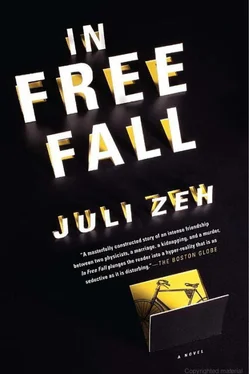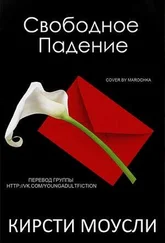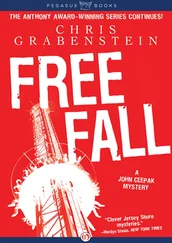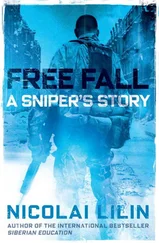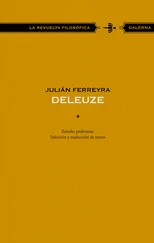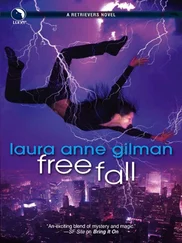“But you’re empty-handed.”
“But they’re my hands!”
As proof she shows the detective the palms of her hands, which despite her size are most elegant.
Schilf stands up, puts away his chess computer, and takes out an old-fashioned fountain pen. The nib tears the paper napkin as he scribbles down a telephone number.
“I still have to check on one detail. Call me if you want to know the outcome. In the meantime, I’m going for a walk in the woods.”
Just as Schilf is leaving the table, Schnurpfeil appears at the entrance and looks around. Conversation ceases at neighboring tables with the appearance of the policeman in the perfectly fitting uniform. Schilf goes straight up to him. He pushes the senior policeman, who is gazing imploringly at Rita, back onto the street.
Exit Schilf , the detective chief superintendent and Rita think at the same time.
CHAPTER 6, IN SEVEN PARTS
The detective superintendent crouches in the ferns. A witness who does not matter appears for the second time. Many a man travels to Geneva.
THE THINNING HAIR ON SCHILF’S TEMPLES is lifted by the cool stream of air coming from between the front seats of the car. He does not find it unpleasant to feel a little cold, even though the air seems to be wafting from Schnurpfeil’s rigidly hostile back. The senior policeman has turned the air-conditioning up high and turned the police radio up loud. Hissing and mumbled speech drowns the conversation that they are not having. Schnurpfeil is looking the detective in the eye through the rearview mirror, and Schilf is directing him through the city with minimal movements of his fingers, a photo from a newspaper balanced on his knees. It shows part of a road and two trees directly opposite each other.
As they pass the last houses, the light and shadow of the Günterstal woods playing on the dashboard, Schnurpfeil breaks his frosty silence.
“You could have just said straight off that you wanted to go to the scene of the crime.”
“Oh dear,” Schilf cries. “You’ve seen through me. So you know where it happened?”
“Everyone knows. And I was one of the crime scene officers.”
“That’s a piece of luck.”
The detective tears up the photo, opens the window, and lets the scraps whirl out. Contentedly he breathes in the warm air rushing through the window. It smells of rosemary, thyme, and oregano. After two deep breaths, Schilf sees himself standing in front of a pretty stone cottage, pruning roses. The walls of the house glow in the evening light as fleet-footed geckos disappear into the gaps between the old stones. When this fictional detective pushes the brim of his straw hat back, an ugly surgical scar running straight across his forehead is exposed. Just as he is about to pour himself a glass of wine from a clay jug, the window closes. Schnurpfeil’s finger is pressing a button. The South of France vanishes.
“When the air-conditioning is on, the windows stay shut,” Schnurpfeil says. “Besides, I know that you’re not in charge of this crime scene. Detective Skura is.”
Schilf leans forward and pats him on the shoulder.
“You Freiburg people love your crimes. It’s as if you’ve committed them yourselves.”
For a while he looks at Schnurpfeil’s thick head of hair. Beneath this primeval forest, a brain is struggling with the thought that First Detective Chief Superintendent Schilf would need to use no more than a few calories to end the career of a young police officer. Schilf is glad that Schnurpfeil is loyal to Rita in spite of this. He would be happy to explain that, although petty territorial fights have their pleasures, he is not at all in the business of taking anything away from the sparring Rita Skura. On the contrary, since this morning—or, more precisely, since the smiling physics professor in the square photograph entered his life—he has felt a new and quite irresistible drive to make everything all right for everyone.
Schnurpfeil, he wants to shout, can you imagine that a case I didn’t even want to board the train for early this morning is really beginning to captivate me? I feel as if I’ve been given one last chance. As if I have the opportunity to repair a great breakage by putting the life of a physics professor in order. Schnurpfeil, there’s suddenly someone I have to rescue! A man whose theories sound as if he is sitting in the middle of my head and formulating my thoughts better than I ever could myself. But Schnurpfeil, Schilf wants to continue, can it be that I have to bring misfortune upon this man in order to help him, to prevent someone else from doing it, someone who might not treat the subtle dissonances of this case with the necessary caution? What do you think, Schnurpfeil? Goddamn it, it’s a classic dilemma!
And Schnurpfeil would shake his head and reply: You’re sick, go see the doctor and leave those in good health to continue their work in peace. Or he would say nothing at all because he would have understood nothing; because for him, there would be nothing to understand, and nothing to say.
“Don’t worry,” Schilf says instead of all this. “I’m still working on the child kidnapping.”
The muscles in Schnurpfeil’s neck twitch. At the Schauinsland cable-car station in the valley, Schnurpfeil switches on his hazard lights as requested. The car climbs up into the forest with its nose held high. The sun flashes through the trees like a strobe light. The detective wonders whether to call his girlfriend that evening and discuss his classic dilemma. For one dizzying second, he thinks that he does not know Julia’s telephone number, until he realizes that her number is also his own, because she lives with him. Right now she is sitting with a cup of tea at the breakfast bar, where she looks perfectly comfortable, unlike him. She is reading old case files or one of his books. The final few minutes of the journey pass easily.
“Here we are,” Schnurpfeil says, when the car stops at the side of the road.
“Final stop, scene of the crime. Everyone off!” Schilf calls in a fit of good humor. “Show me the trees.”
Schnurpfeil looks straight ahead of him like a soldier, and stays put behind the steering wheel, making no move to leave the car. Let him choke on his loyalty to Rita Skura, Schilf thinks, not feeling inclined to give an official order. Back first, Schilf climbs out of the police car. Even without help, it is easy to pick out the two trees. They flank the road like gateposts, separating two seemingly identical worlds. The forest rises up into the sky on both sides, like a three-dimensional puzzle.
How easy it is to distinguish the two halves from each other, Schilf thinks. Here and there, before and after, life and death. You could do it anywhere, with nothing but a cable.
The air tastes clean, drinkable like water. The birds twittering incessantly. We should do more open-air investigations, the detective thought , the detective thinks.
AFTER A CURSORY GLANCE AT THE MARKS left on the bark by the steel cable, he pushes his way into the scrub. He crosses the ditch, lifting brambles carefully from his shirt, and slides down into the undergrowth with one hand on the ground. The traces left by the forensic team are clear to see: bits of plaster from casts of footprints, earth that has been dug up, and branches that have been sawn off. Schilf parts the ferns with both hands and ducks under the green surface in a moment that seems fleeting. Squatting down, he looks around him. He is surrounded by hairy branches with brownish rolled-up leaves like snail shells.
The descent was hot work. His shirt sticks to his back and he tastes salt on his upper lip. Schilf rolls up his shirtsleeves and waits. He is convinced that this place will have something for him, something the forensic team could not find, because it does not consist of flakes of skin and hair. It is the story of how a boundary was crossed. A story about how thin the membrane is that holds a human life together. Schilf wants to know what it is like for one man to wait for another to die. Ants form a dark pile on top of a caterpillar, which twitches clumsily as its body is carried off in pieces. Apart from that, there is nothing that can help the detective’s understanding.
Читать дальше
